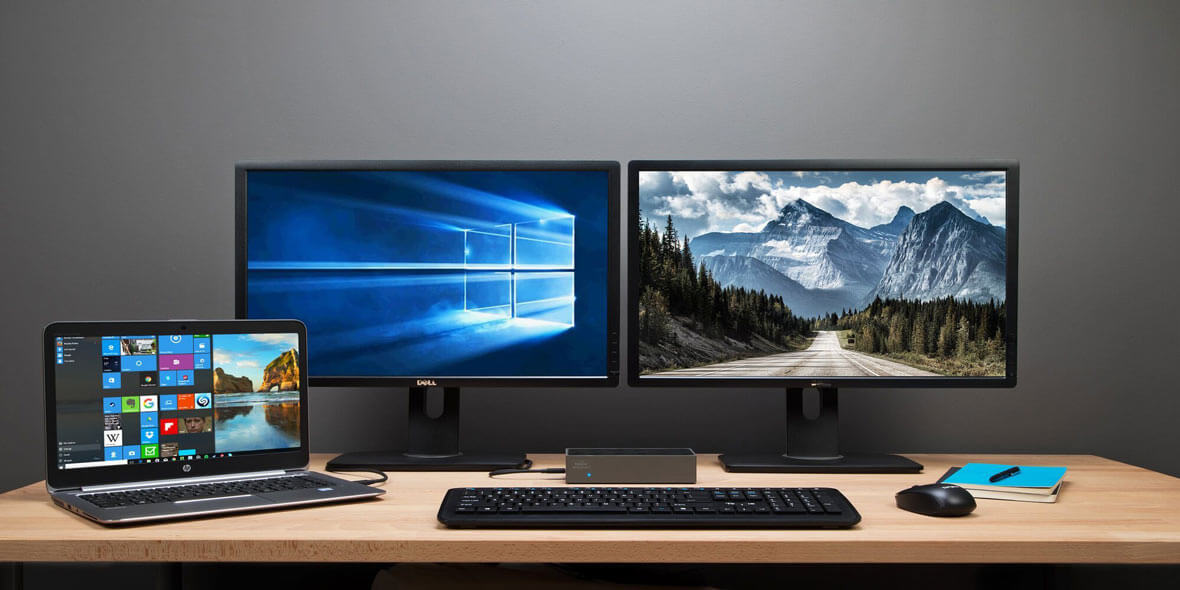Targus Universal Docking Stations Provide Complete CYOD-Ready Solution For Global Software Giant

Background Consumerization of IT represents a major shift in the information technology market and organizations are scrambling to contend with real and perceived challenges it brings, including security, privacy, compliance, as well as the difficulties inherent to tying BYOD tools to existing systems and services. Nonetheless, many organizations are realizing that embracing this trend can have far-reaching positive benefits. One survey found that around 80% of the IT respondents felt that consumerization would result in moderate to dramatic positive impacts, which included increases in user satisfaction, productivity, business agility, process efficiency, and collaboration. Among the consumer devices making their way into the corporate environment are Microsoft's Windows tablets and touch-enabled laptops. Increasingly, enterprises are recognizing the ability of these devices to provide users with enhanced mobility and productivity for both work and personal use.
Problem Consumerization is epitomized by the increasing tendency of employees to bring their own devices into the workplace, or "BYOD". A variation on this theme occurs when enterprises allow employees to choose a device from several offered by the organization, or CYOD (choose your own device). In either scenario, there is no one corporate standard, making compatibility a central issue in this new age of technologically empowered employees. In this case study, the organization selected six new Windows Ultrabook, ThinkPad and tablet platforms from which their employees could choose. A substantial number of the employees work at home as well as in the office, with the company providing productivity solutions in both environments, including a full desktop workstation with 2-4 monitors, mouse, and keyboard. The challenge: quick, easy connectivity of the existing workstation components to the new Windows hardware.
Solution The company's previous laptop mobility solutions consisted of a single standard for all users, with a model-specific dock for easy workstation connectivity as well as simplified purchasing and support. With the added complexity of the new multi-platform PC environment, universal USB 3.0 docking stations offered the only feasible solution for maintaining the established ease of workstation connectivity plus manageable purchasing and support. The company evaluated multiple USB 3.0 docking solutions, including those from PC OEM brands. The Targus ACP71 Universal USB 3.0 docking station provided all the performance of the OEM docks, with the added benefit of being fully compatible with any Windows platform. And while each solution met the basic connectivity requirements, Targus was the only brand that delivered a complete CYOD-ready solution for Microsoft, including:
- The ability to provide universal power/charging to users that wanted this convenience, while also offering the lowest cost solution.
- A three-year warranty, meeting the corporate standard.
- The expertise, service, and support of a company with docking stations as a core business.
- A solution that would not create service conflicts with a mix of OEM brands.


